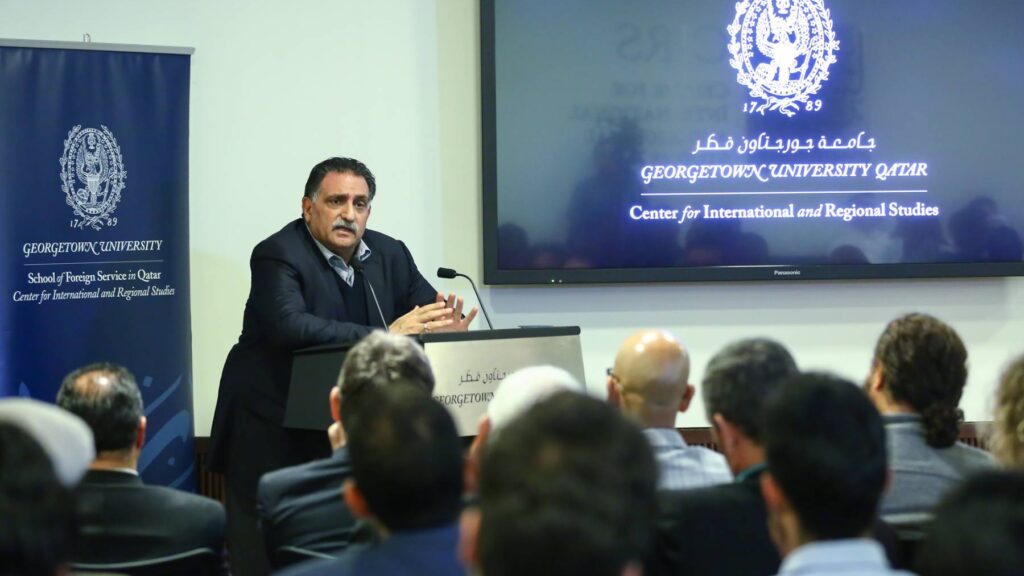CIRS Hosts Azmi Bishara’s Talk on Democracy in the Middle East

‘Did Democracy lose this round? And Why?’ Arab political researcher and intellectual Dr. Azmi Bishara delved into the complexities of democracy in the Middle East at a recent talk at the Center for International and Regional Studies (CIRS) at Georgetown University in Qatar.
Bishara, who is the general director of the Arab Center for Research and Policy Studies, shared his thoughts on why the Arab uprisings have often lacked the political vision to turn mass protest action into transformed democratic states. Drawing on developments in Tunisia, Egypt and Syria, Bishara explained that a culture of democracy is needed among those who take power, in order to ensure sustained change.
“Democratic revolution cannot win without support from political elites,” he said, detailing how a plan for democracy is needed, not just calls for change. He also expounded on the difficulties of achieving political change without support or agreement from the military, especially in countries with sizeable armies.
The event, which formed part of the CIRS monthly dialogue series, brought together academic scholars, students, and invited guests to engage with the prominent researcher and writer.
“Throughout Europe and the Americas, as well as in the Middle East and elsewhere, democracy is confronting serious challenges at both the elite level and among ordinary citizens,” said CIRS Director Dr. Mehran Kamrava. “I am excited that we had the opportunity to hear an analysis of the issue by Azmi Bishara, one of the Arab world’s most serious contemporary thinkers.”
Bishara has written numerous academic books and papers on subjects ranging from political thought to social theory and philosophy. A former professor of Philosophy and History of Political Thought, he co-founded Muwatin, the Palestinian Institute for the Study of Democracy, and Mada al-Carmel, the Arab Center for Applied Social Research.
Bishara was also the principal founder of the National Democratic Assembly (Balad), a Palestinian-Arab political party, which he represented as an elected member of parliament for four consecutive sessions. In 2007, Bishara was persecuted for his political positions, and now resides in Qatar. He was the recipient of the Ibn Rushd Prize for Freedom of Thought in 2002 and the 2003 Global Exchange Human Rights Award.